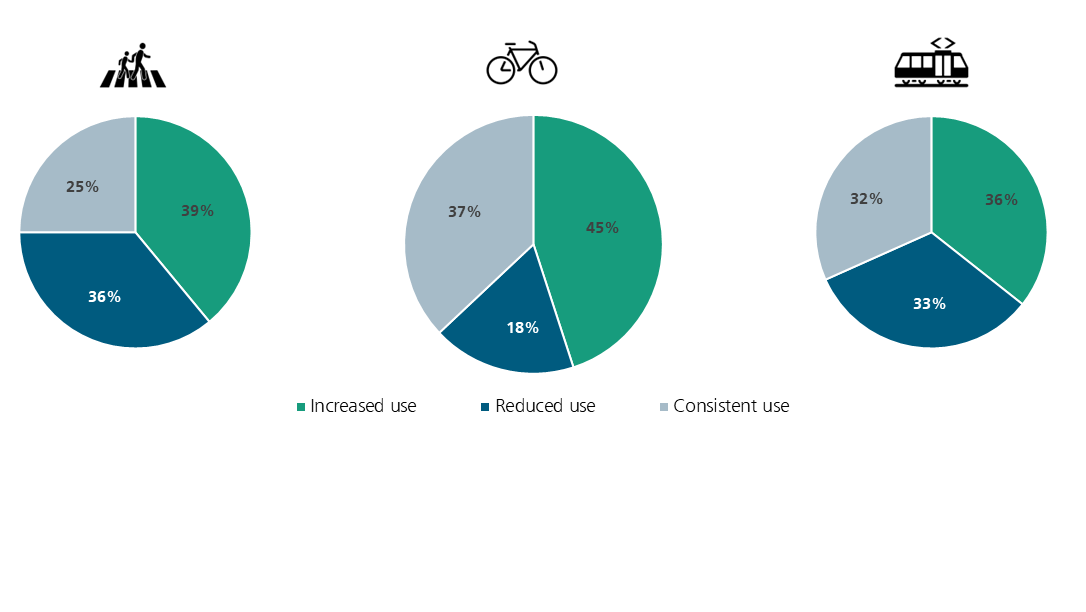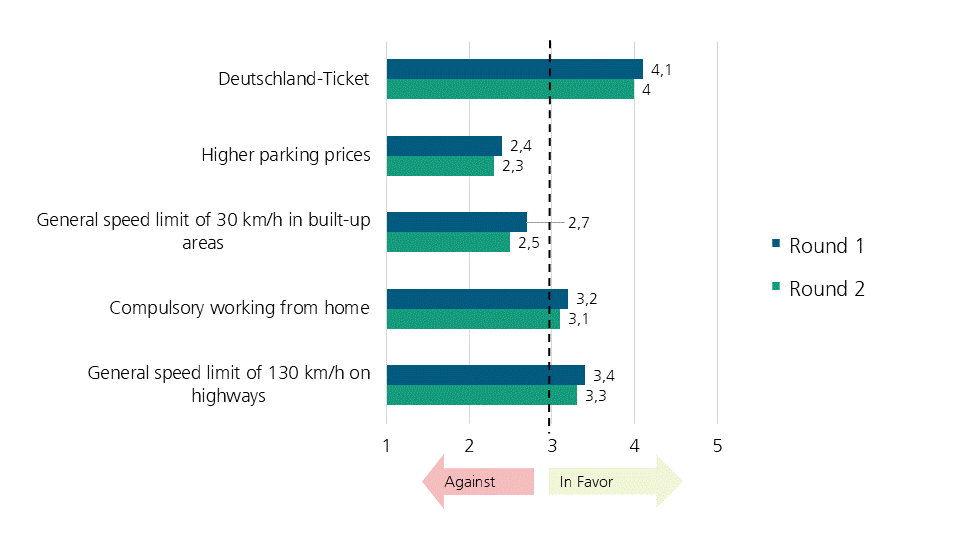More than good intentions? In addition to the willingness to change behavior, what else is needed in order to switch to sustainable forms of mobility?
As part of the MobilKULT project, we are investigating the connections between infrastructures, mobility habits, mobility culture and policy measures. In doing so, we are contributing to a better understanding of the possibilities and limitations of a mobility transition. We collect the data every six months using surveys in the German states of Baden-Württemberg and Mecklenburg-Western Pomerania. The second round of the survey has now been completed and the first results are available.
Our society's current mobility habits are partly associated with high costs in terms of finances, the environment and health – for individuals as well as society as a whole. More sustainable mobility habits are not just good for our own health – they can also help safeguard the quality of life of future generations.
One of the aims of our MobilKULT project is to find out why switching to more sustainable forms of mobility is so difficult despite the many advantages. To do this, it is essential to look at the infrastructure and political framework conditions as well as car culture and people's habits.
At intervals of around six months, a representative sample of some 2,500 people from Baden-Württemberg and Mecklenburg-Western Pomerania are able to give their opinion on these aspects in the surveys.
Our aim is to survey the same people again and again in order to be able to measure changes. In the second round of the survey, which has now been completed, we were able to re-contact 1,234 people, i.e., 50 percent of the participants from the first round – the other respondents all participated for the first time. A more detailed description of the various topics, methods and results can be found on the project website.
People would like to use alternatives to car – and up to 45% are actually doing so
We were initially interested in the extent to which people follow up on their intentions when it comes to changing their mobility habits. In the first round of the survey, frequent drivers often stated that they would like to switch to an alternative mode of transport.
In the second round, we can see that up to 45% of people had actually put these plans into action six months later. In other words, the proportion of journeys they made using sustainable modes of transport increased by up to 19 percentage points. However, this result also indicates that more than half of the people who intended to change their behavior were not using sustainable alternatives more frequently and were possibly even using them less frequently than six months earlier.
Average bicycle use is increasing, and average car use is decreasing – both in urban and suburban areas as well as in rural areas. Sustainable mobility therefore does not have to be a purely urban phenomenon. However, one reason for this finding is probably the better weather during the survey in the summer. Therefore, we will monitor this trend closely in the next round.
Policy measures are perceived more negatively than six months earlier
In general, compared to the first round of the survey in winter 2022/2023, we found a lower level of support for policy measures – regardless of whether these were restrictive or incentive measures. This may indicate a certain policy fatigue which may have emerged in society during 2023.
However, the results also show that policy measures are still an important means of steering people's mobility behavior in a more sustainable direction: People who intend to change their mobility habits in the future have a more positive attitude toward the measures we investigated. While approval ratings also declined among these respondents, this decline was less marked than among those with a not intending to change their behavior.
What's next for MobilKULT?
We are currently conducting the third round of the survey. This will indicate whether the initially identified trends are continuing. As soon as we post the results on our project website, we will update our blog and social media channels. Our aim with this study is to contribute to current public debate.
In addition, the data that we collect at regular intervals as part of this project forms the basis for a dissertation that Marvin Helferich (CC Energy Policy and Energy Markets) is writing within the Doctoral Program at Fraunhofer ISI. The focus is on exactly how Germany’s strong car culture manifests itself and affects people's choice of alternative means of transport. He tells us more about this in the video “My dissertation in 100 seconds”).

